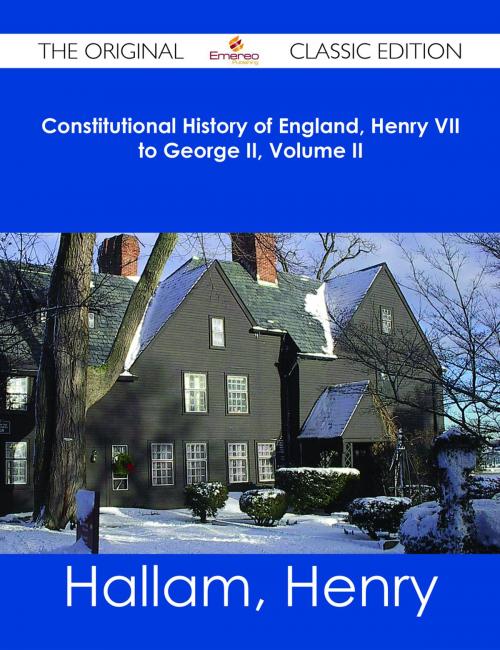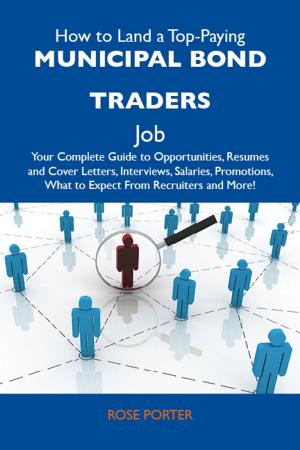Constitutional History of England, Henry VII to George II, Volume II - The Original Classic Edition
Nonfiction, Reference & Language, Reference, Fiction & Literature| Author: | Henry Hallam | ISBN: | 9781486483600 |
| Publisher: | Emereo Publishing | Publication: | March 8, 2013 |
| Imprint: | Emereo Publishing | Language: | English |
| Author: | Henry Hallam |
| ISBN: | 9781486483600 |
| Publisher: | Emereo Publishing |
| Publication: | March 8, 2013 |
| Imprint: | Emereo Publishing |
| Language: | English |
Finally available, a high quality book of the original classic edition of Constitutional History of England, Henry VII to George II, Volume II. It was previously published by other bona fide publishers, and is now, after many years, back in print.
This is a new and freshly published edition of this culturally important work by Henry Hallam, which is now, at last, again available to you.
Get the PDF and EPUB NOW as well. Included in your purchase you have Constitutional History of England, Henry VII to George II, Volume II in EPUB AND PDF format to read on any tablet, ereader, desktop, laptop or smartphone simultaneous - Get it NOW.
Enjoy this classic work today. These selected paragraphs distill the contents and give you a quick look inside Constitutional History of England, Henry VII to George II, Volume II:
Look inside the book:
Declaration of the King after the Dissolution—Prosecutions of Eliot and others for Conduct in Parliament—Of Chambers for refusing to pay Customs—Commendable Behaviour of Judges in some Instances—Means adopted to raise the Revenue—Compositions for Knighthood—Forest Laws—Monopolies—Ship-Money—Extension of it to inland Places—Hampden's Refusal to pay—Arguments on the Case—Proclamations—Various arbitrary Proceedings—Star-Chamber Jurisdiction—Punishments inflicted by it—Cases of Bishop Williams, Prynne, etc.—Laud, his Character—Lord Strafford—Correspondence between these two—Conduct of Laud in the Church—Prosecution of Puritans—Favour shown to Catholics—Tendency to their Religion—Expectations entertained by them—Mission of Panzani—Intrigue of Bishop Montagu with him—Chillingworth—Hales—Character of Clarendon's Writings—Animadversions on his Account of this Period—Scots Troubles, and Distress of the Government—Parliament of April 1640—Council of York—Convocation of Long Parliament Page 1 ...Popular Joy at the Restoration—Proceedings of the Convention Parliament—Act of Indemnity—Exclusion of the Regicides and others—Discussions between the Houses on it—Execution of Regicides—Restitution of Crown and Church Lands—Discontent of the Royalists—Settlement of the Revenue—Abolition of Military Tenures—Excise granted instead—Army disbanded—Clergy restored to their Benefices—Hopes of the Presbyterians from the King—Projects for a Compromise—King's Declaration in Favour of it—Convention Parliament dissolved—Different Complexion of the next—Condemnation of Vane—Its Injustice—Acts replacing the Crown in its Prerogatives—Corporation Act—Repeal of Triennial Act—Star-chamber not restored—Presbyterians deceived by the King—Savoy Conference—Act of Uniformity—Ejection of Nonconformist Clergy—Hopes of the Catholics—Bias of the King towards them—Resisted by Clarendon and the Parliament—Declaration for Indulgence—Objected to by the Commons—Act against Conventicles—Another of the same Kind—Remarks on them—Dissatisfaction increases—Private Life of the King—Opposition in Parliament—Appropriation of Supplies—Commission of public Accounts—Decline of Clarendon's Power—Loss of the King's Favour—Coalition against him—His Impeachment—Some Articles of it not unfounded—Illegal Imprisonments—Sale of Dunkirk—Solicitation of French Money—His Faults as a Minister—His pusillanimous Flight—and consequent Banishment—Cabal Ministry—Scheme of Comprehension and Indulgence—Triple Alliance—Intrigue with France—King's Desire to be absolute—Secret Treaty of 1670—Its Objects—Differences between Charles and Louis as to the Mode of its Execution—Fresh Severities against Dissenters—Dutch War—Declaration of Indulgence—Opposed by Parliament—and withdrawn—Test Act—Fall of Shaftesbury and his Colleagues Page 278
About Henry Hallam, the Author:
His first major work, The View of the State of Europe during the Middle Ages, was produced in 1818, and was followed nine years later by the Constitutional History of England. ...^ Robertson 1911, p. 851 notes that Lord Brougham, overlooking the constitutional chapter in the Middle Ages
Finally available, a high quality book of the original classic edition of Constitutional History of England, Henry VII to George II, Volume II. It was previously published by other bona fide publishers, and is now, after many years, back in print.
This is a new and freshly published edition of this culturally important work by Henry Hallam, which is now, at last, again available to you.
Get the PDF and EPUB NOW as well. Included in your purchase you have Constitutional History of England, Henry VII to George II, Volume II in EPUB AND PDF format to read on any tablet, ereader, desktop, laptop or smartphone simultaneous - Get it NOW.
Enjoy this classic work today. These selected paragraphs distill the contents and give you a quick look inside Constitutional History of England, Henry VII to George II, Volume II:
Look inside the book:
Declaration of the King after the Dissolution—Prosecutions of Eliot and others for Conduct in Parliament—Of Chambers for refusing to pay Customs—Commendable Behaviour of Judges in some Instances—Means adopted to raise the Revenue—Compositions for Knighthood—Forest Laws—Monopolies—Ship-Money—Extension of it to inland Places—Hampden's Refusal to pay—Arguments on the Case—Proclamations—Various arbitrary Proceedings—Star-Chamber Jurisdiction—Punishments inflicted by it—Cases of Bishop Williams, Prynne, etc.—Laud, his Character—Lord Strafford—Correspondence between these two—Conduct of Laud in the Church—Prosecution of Puritans—Favour shown to Catholics—Tendency to their Religion—Expectations entertained by them—Mission of Panzani—Intrigue of Bishop Montagu with him—Chillingworth—Hales—Character of Clarendon's Writings—Animadversions on his Account of this Period—Scots Troubles, and Distress of the Government—Parliament of April 1640—Council of York—Convocation of Long Parliament Page 1 ...Popular Joy at the Restoration—Proceedings of the Convention Parliament—Act of Indemnity—Exclusion of the Regicides and others—Discussions between the Houses on it—Execution of Regicides—Restitution of Crown and Church Lands—Discontent of the Royalists—Settlement of the Revenue—Abolition of Military Tenures—Excise granted instead—Army disbanded—Clergy restored to their Benefices—Hopes of the Presbyterians from the King—Projects for a Compromise—King's Declaration in Favour of it—Convention Parliament dissolved—Different Complexion of the next—Condemnation of Vane—Its Injustice—Acts replacing the Crown in its Prerogatives—Corporation Act—Repeal of Triennial Act—Star-chamber not restored—Presbyterians deceived by the King—Savoy Conference—Act of Uniformity—Ejection of Nonconformist Clergy—Hopes of the Catholics—Bias of the King towards them—Resisted by Clarendon and the Parliament—Declaration for Indulgence—Objected to by the Commons—Act against Conventicles—Another of the same Kind—Remarks on them—Dissatisfaction increases—Private Life of the King—Opposition in Parliament—Appropriation of Supplies—Commission of public Accounts—Decline of Clarendon's Power—Loss of the King's Favour—Coalition against him—His Impeachment—Some Articles of it not unfounded—Illegal Imprisonments—Sale of Dunkirk—Solicitation of French Money—His Faults as a Minister—His pusillanimous Flight—and consequent Banishment—Cabal Ministry—Scheme of Comprehension and Indulgence—Triple Alliance—Intrigue with France—King's Desire to be absolute—Secret Treaty of 1670—Its Objects—Differences between Charles and Louis as to the Mode of its Execution—Fresh Severities against Dissenters—Dutch War—Declaration of Indulgence—Opposed by Parliament—and withdrawn—Test Act—Fall of Shaftesbury and his Colleagues Page 278
About Henry Hallam, the Author:
His first major work, The View of the State of Europe during the Middle Ages, was produced in 1818, and was followed nine years later by the Constitutional History of England. ...^ Robertson 1911, p. 851 notes that Lord Brougham, overlooking the constitutional chapter in the Middle Ages















